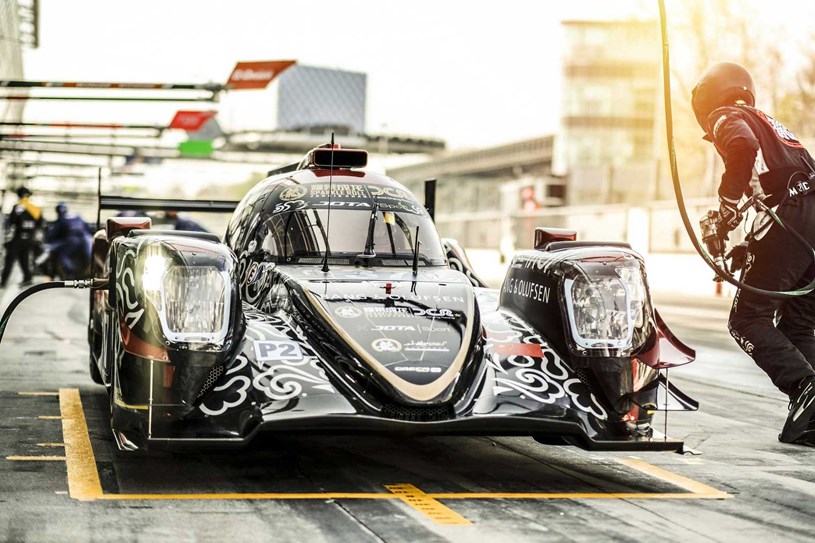
Building Your Business Brand As a Sponsor
Sponsorship is a marketing activity that instantly conjures images of high-profile sporting and cultural events funded in the main by well-funded aspirational brands that have significant existing market share and reach. But just stop and consider that statement – is it accurate? How many times have you watched your favourite sport on TV, or attended a cultural activity such as a music festival and found that you have no idea who the company is whose name you see on every shirt, vehicle, or advertising hoarding? These companies are often brand-building and sponsorship can be one of the very best marketing activities from which to do this. But sponsorship does come with both advantages and disadvantages, so take some time to understand this activity before you jump in!
Contrary to the scene painted at the start of this article then, businesses that utilise sponsorship as a part of their marketing strategy are not just the well-heeled multi-nationals – far from it. Many small businesses use sponsorship very effectively and (here’s the important bit) they see a commercial return on investment from doing so. Read that last sentence again and let it sink in. If you are a sponsor, or are currently considering a sponsorship proposal and you are not experiencing or being offered a measurable return on your investment, then it’s probably time to reconsider the activity. Successful sponsors, large and small, recognise this and it is purely what their sponsorship marketing decisions are based-on.

Successful use of sponsorship to grow your business brand goes hand-in-hand with understanding what sponsorship is. Sponsorship in marketing is a specialist subject that needs a much deeper understanding than is at first apparent. Not only do you need an understanding of how it can be used, but you need to understand what it is not. Many senior executives and business owners can get very enthusiastic about a ‘sponsorship opportunity’ because it offers then a chance to get involved with a sporting or cultural activity that they are passionate about. These opportunities are therefore more accurately described as patronage because there is no commercial return that can be ascribed to them. They are simply ‘passion projects’. Also, many business events and sports clubs will sell you ‘sponsorship’ that is purely advertising. While it’s true to say that advertising can be used with sponsorship, the two are actually very different and are used for different purposes in marketing.
Benefits of Sponsorship
Sponsorship provides a multi-dimensional, integrated marketing platform that can be used to deliver a wide variety of marketing activities to meet many of the requirements for growing a successful brand. It can therefore be used as the cornerstone of nearly all of your marketing activities, which is contrary to the popular vision of it being ‘another tool in the marketing mix’. With a little careful thought and planning, your sponsorship programme can deliver across a wide range of marketing activities:
Brand Awareness
Although this can be seen mainly as a way to increase the visibility of your business brand, the critical thing to consider here is ‘does this increase the visibility to my target audience’? The effectiveness of using sponsorship for brand awareness is that you choose to sponsor the activity that gets your brand in front of right audience. This is where sponsorship and advertising start to diverge, as sponsorship can be much more targeted, engaging, and flexible.
Brand Identity
By choosing the sporting or cultural event that you wish to be associated with, your own brand identity can be enhanced by association. By partnering with the right sponsorship property, the reflected identity can be shared, further defining and elevating your own brand alongside that of the sponsored activity.
Brand Positioning
Similar to brand identity, in positioning your brand alongside that of an aspirational sponsorship property, your brand will be perceived as serving a similar demographic or business sector.
Entering New Markets
If your chosen sponsorship property opens-up a direct link to a new and lucrative market, this could be the stage for you. Many global sporting events have provided this as a part of their sponsorship offering for many years. With a little imagination, this can be used on much smaller geographies too.
Building on Third-Party Relationships
A sponsorship activity can provide many opportunities to work with the rights holder to mutual benefit. Often, the sponsorship platform may require the services that you provide and will in turn design a means to promote your services to other suppliers, clients, and associations.
PR
Again, working with your chosen sponsorship activity will almost certainly provide opportunities to benefit from the PR activities that they undertake. Work with them to jointly identify PR opportunities that will elevate your brand while providing you with visibility to the wider application.
Hospitality
Don’t forget this. It’s one of the oldest reasons for becoming a sponsor and it is still very relevant, especially when used alongside some of the other benefits above. However, beware sponsorship proposals that simply promote this feature in order to sell their own event tickets or debentures.
Digital Engagement
Having read this far, I’m sure that you’re beginning to get a feel for how you can leverage a sponsorship to raise brand awareness. Digital engagement of fans, shared technology, or social posts can be very powerful and should always be in mind when negotiating any sponsorship deal. How you work with the sponsorship property, its other sponsors, suppliers, and stakeholders can work as a multiplier to really raise your brand awareness in a very cost-effective way.
What to Sponsor – Choose Wisely
Once you’ve taken the time to plan and understand what you want from sponsorship, it’s time to identify who you wish to work with. It’s important to highlight here, that you are negotiating an agreement to market your business and not buying a sponsorship ‘package deal’ that is focused only on what the sporting activity, personality, or event wishes to get from it financially. This is how a lot of sponsorships are sold to inexperienced sponsors and is never a good place to start.
As a sponsor, you need to work with a sponsorship property that can deliver on all of the marketing activities that you have identified and more. It doesn’t matter how large or small the sponsorship amount is, you must still engage in this process both for your own financial returns and that of the sponsored property. By working together and understanding what both sides want and need to get from the agreement, both will benefit from this process.
Activation, Promotion, and Engagement
As with most things in life you get out of sponsorship what you put into it. I’m often asked to identify the most important element of a sponsorship agreement, and I have to say that it is the one that most people forget - the promotion and management of it.
What I’m talking about here is known as Activation. This is the process of designing into the sponsorship precisely how you are going to position what you do within the context of the sponsorship, how you are going to build all of the activities with the sponsorship property to promote your product or service and how you will engage with the sponsorship audience to promote your brand. If you are a B2C brand, this could be how you engage with the fans of the sport for example, or for B2B brands, how you will engage with other sponsor partners and / or markets in order to leverage the benefits of your sponsoring platform. There is a cost to this, so negotiate this into your sponsorship agreement.
Summary
Sponsorship is a poorly understood marketing activity, often confused with other marketing initiatives. However, if you take the time to understand the way sponsorship really works, and plan your strategy, sponsorship can offer many advantages to businesses looking to raise their brand awareness.
Would you like to obtain more detailed insight into the use of commercial sponsorship for your company? Or maybe you're a Rights Holder looking to obtain sponsorship for your project? Please Contact Us for assisitance.
Mike Flarry is a brand and digital marketer with a career spanning 30 years. He has helped large and small companies alike to generate more income from their marketing activities and has launched large new brands onto the UK market. He specialises in the marketing of B2B Tech and Software organisations. Follow Mike on LinkedIn
Have you ever used commercial sponsorship to generate brand awareness? If so, we'd really like to hear about your experiences. Please use our Disqus comments below and share your experiences.




